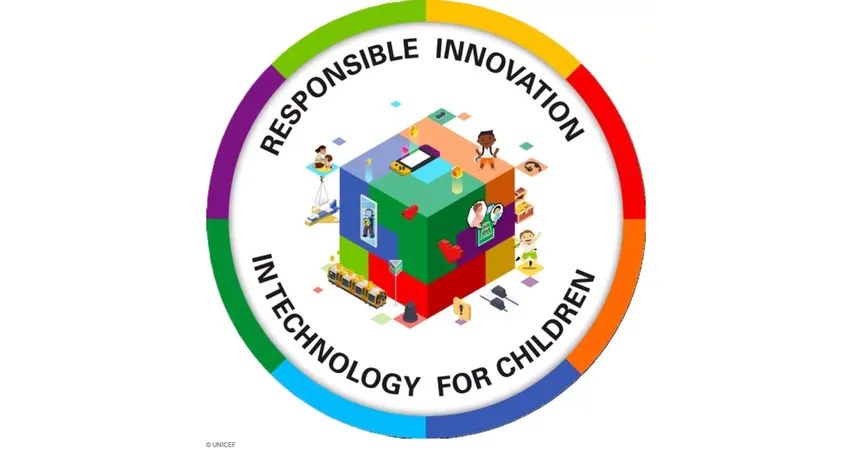
LEGO and UNICEF Launch Revolutionary Game Design Toolbox to Enhance Children's Digital Wellbeing!
2024-11-20
Author: Nur
LEGO and UNICEF Launch Revolutionary Game Design Toolbox to Enhance Children's Digital Wellbeing!
In an exciting collaboration, LEGO and UNICEF have unveiled an innovative set of design guidelines aimed at game developers to significantly boost children's wellbeing during digital play. This forward-thinking initiative, known as the Responsible Innovation in Technology for Children (RITEC) toolbox, seeks to empower game designers with practical tools that create interactive experiences focused on children's mental health and overall wellbeing.
The RITEC project is a groundbreaking study co-founded by LEGO and UNICEF, which engaged over 780 children across 18 countries. Findings from this extensive research indicate that, when thoughtfully designed, digital play can positively influence a child's emotional and social development. This research was conducted in collaboration with esteemed institutions like Western Sydney University, the University of Sheffield, New York University, City University of New York, and Queensland University of Technology.
“If crafted mindfully, games can offer children a pathway to regulate their emotions, foster connections, and derive joy from play,” the initiative asserts.
A standout feature of the RITEC toolbox is the introduction of the RITEC-8 framework, which emphasizes eight critical wellbeing outcomes that children can gain from digital play: autonomy, competence, emotional regulation, relationships, creativity, identities, diversity, equity & inclusion, and safety & security. This framework was developed in partnership with over 35 gaming companies spanning 15 countries.
Designing for children's wellbeing is not just a concept; it’s an essential component of creating enriching experiences. The toolbox encourages designers to provide children with a sense of agency, freedom of choice, and the opportunity to achieve, thus enhancing their emotional and cognitive development. By allowing children to engage in creative exploration and the realization of new ideas, the experience can be transformative.
Moreover, the RITEC design toolbox also features a comprehensive executive summary that outlines the business advantages of prioritizing wellbeing in game design. It provides a shared vocabulary for developers to communicate effectively about children's needs and preferences, alongside innovative online gaming features that foster healthy interactions.
This initiative is expected to change the landscape of digital gaming for children, ensuring that every game not only entertains but also contributes positively to their emotional and social growth. As the digital age continues to evolve, the collaboration between LEGO and UNICEF represents a significant step towards creating a more responsible and nurturing environment for our youngest players. Don’t miss out on the chance to be part of this revolutionary movement in children's digital play!



 Brasil (PT)
Brasil (PT)
 Canada (EN)
Canada (EN)
 Chile (ES)
Chile (ES)
 España (ES)
España (ES)
 France (FR)
France (FR)
 Hong Kong (EN)
Hong Kong (EN)
 Italia (IT)
Italia (IT)
 日本 (JA)
日本 (JA)
 Magyarország (HU)
Magyarország (HU)
 Norge (NO)
Norge (NO)
 Polska (PL)
Polska (PL)
 Schweiz (DE)
Schweiz (DE)
 Singapore (EN)
Singapore (EN)
 Sverige (SV)
Sverige (SV)
 Suomi (FI)
Suomi (FI)
 Türkiye (TR)
Türkiye (TR)